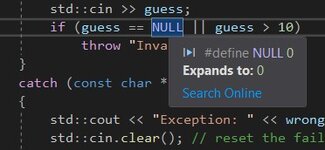Bueno creo este tema con la intención de que compartamos scripts solamente en Python, no se admiten otros lenguajes, yo recién comencé a estudiar Python, así que voy a empezar con algo muy básico, si pueden comentar el funcionamiento del script mejor.
Pd: Sabían que una computadora no puede generar verdaderos números aleatorios?(ahora un ¨tufao¨ ve esto y se va a quedar.... naahhhh mentira!?, ño! eso no me lo sabia... si ya... Lo que genera este pequeño script es un número pseudoaleatorio, que parece aleatorio pero en verdad no lo es.
naahhhh mentira!?, ño! eso no me lo sabia... si ya... Lo que genera este pequeño script es un número pseudoaleatorio, que parece aleatorio pero en verdad no lo es.
WARNING!
Cualquier parecido de algunos de los scripts publicados aquí con alguno de Stack Overflow o al de algún tutorial es pura coincidencia.
Script basado en hechos reales.
Un ¨jueguito¨ básico en el que tienes que adivinar un número entre el 0 y el 10 en 3 intentos.Cualquier parecido de algunos de los scripts publicados aquí con alguno de Stack Overflow o al de algún tutorial es pura coincidencia.
Script basado en hechos reales.
Python:
# Made by レッド・ノヴァ(Red Nova)
import random # import random module
secret_number = random.randint(0, 10) # it gets a pseudorandom integer between 0 and 10
guess_count = 0
guess_limit = 3
print("Guess the number between 0 to 10")
while guess_count < guess_limit:
guess = int(input("Guess: "))
guess_count +=1
if guess == secret_number:
print("You won!")
break
else:
print("Sorry, you failed")Pd: Sabían que una computadora no puede generar verdaderos números aleatorios?(ahora un ¨tufao¨ ve esto y se va a quedar....
 naahhhh mentira!?, ño! eso no me lo sabia... si ya... Lo que genera este pequeño script es un número pseudoaleatorio, que parece aleatorio pero en verdad no lo es.
naahhhh mentira!?, ño! eso no me lo sabia... si ya... Lo que genera este pequeño script es un número pseudoaleatorio, que parece aleatorio pero en verdad no lo es.
Última edición:


